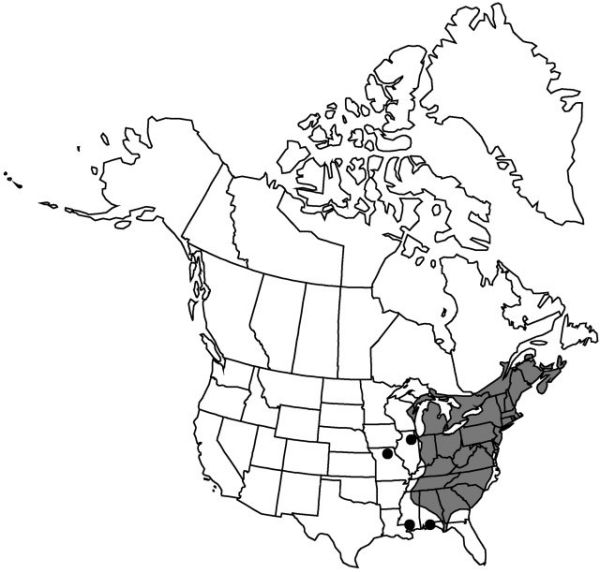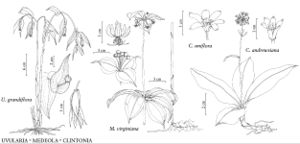Medeola virginiana
Sp. Pl. 1: 339. 1753.
Rhizomes 3–8 × 1 cm, decaying every year. Stems 2–9 dm, white-woolly when young, 1–3 deciduous bracts below proximal leaf whorl. Leaf-blades sessile or short-petiolate, becoming purple-tinged basally in fruit, 5–9 (–12) in proximal whorl, 6–16 × 1.5–5 cm, 3 (–5) in distal whorl, 2.5–5 × 1.5–4 cm. Tepals yellowish green, 6–10 mm. Fruits (5–) 8–10 (–14) mm diam. Seeds 3 mm. 2n = 14.
Phenology: Flowering late spring.
Habitat: Moist slopes, mesic woods
Elevation: 0–1600 m
Distribution

N.B., N.S., Ont., P.E.I., Que., Ala., Conn., Del., D.C., Fla., Ga., Ill., Ind., Ky., La., Maine, Md., Mass., Mich., Miss., Mo., N.H., N.J., N.Y., N.C., Ohio, Pa., R.I., S.C., Tenn., Vt., Va., W.Va., Wis.
Discussion
The rhizome of Medeola virginiana has the taste and odor of cucumber and is edible. The whorled leaves look like those of the orchid Isotria verticillata. The Iroquois of eastern North America used M. virginiana as an anticonvulsive, pediatric aid (D. E. Moerman 1986).
Selected References
None.
Lower Taxa
"broad" is not a number."thicker" is not a number."dm" is not declared as a valid unit of measurement for this property.
